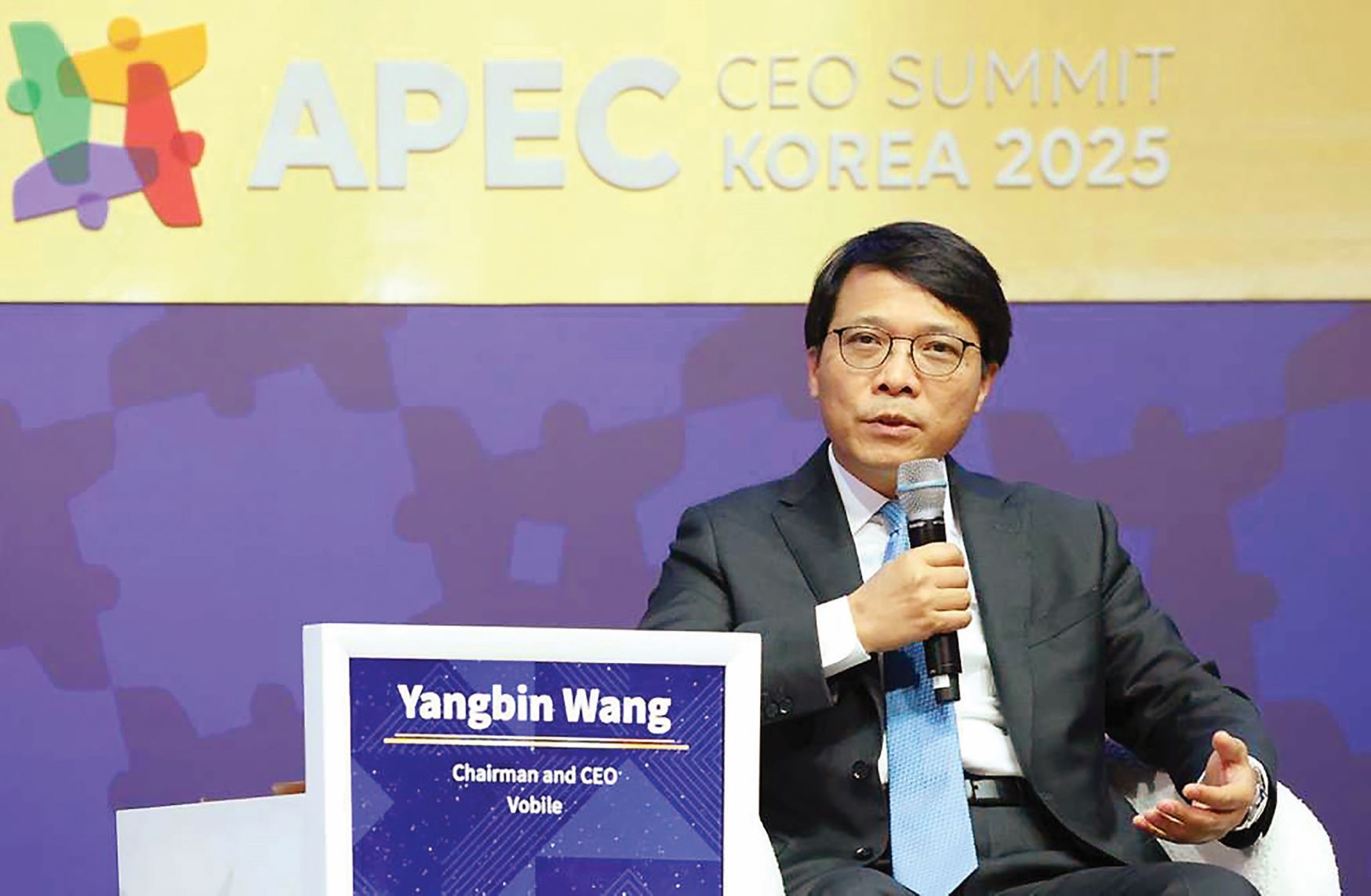
Vobile, a Silicon Valley-based company specializing in digital content intellectual-property protection, sees great potential in the global expansion of Chinese cultural products, and its recent entry into Hong Kong serves as a crucial piece of its strategic puzzle, the company’s CEO said.
Speaking to China Daily on the sidelines of the Asia-Pacific Economic Cooperation CEO Summit in Gyeongju, Republic of Korea, Wang Yangbin said Vobile has increased its focus on Hong Kong, drawn not only by the city’s capital market but also its creativity and close ties with the Chinese mainland.
Earlier this month, Vobile announced an expansion into Hong Kong, in collaboration with the city’s Office for Attracting Strategic Enterprises, which is dedicated to attracting enterprises from industries of strategic importance to Hong Kong.
READ MORE: APEC: Officials, experts highlight HK's potential for AI governance
“We have long banked on the city’s capital market since we listed on the Hong Kong stock exchange in 2018,” Wang said. “But now we also see its substantial potential in the culture and creative industries.”
Vobile mainly serves copyright holders of films, television programs, and music, helping them identify unauthorized reposting of their works on digital platforms. Its clients include YouTube, Netflix, and Hollywood studios.
Wang said that one of Vobile’s core missions is to help content creators control and profit from their works. “Once infringement is detected, copyright holders can either require platforms to remove infringing content, or demand a share of revenue obtained from unauthorized plays,” he said.
Through its office in Hangzhou, Zhejiang province, Vobile has been supporting the mainland cultural works’ “go global” efforts for years. In the first half of 2025, its mainland businesses grossed HK$727 million ($93.6 million) in revenue, a 20.1 percent year-on-year increase.
Multipronged strengths
Citing minidramas and the blockbuster Ne Zha 2 as examples of mainland works gaining global exposure, Wang envisions Hong Kong becoming a unique catalyst in this trend.
Since films and music are now distributed online, their cross-border dissemination is essentially a flow of data, he said. “In this regard, Hong Kong is well-positioned to be a data-transit hub between the mainland and overseas, much like its long-standing role as a trade entrepot.”
He added that Hong Kong should also capitalize on the digital economy boom to revive its own culture and creative industries, with copyright protection efforts serving as a key booster.
Wang recalled a Hong Kong director who produced a popular film and sold the copyright to a United States company years ago. Although clips of the film have now amassed over 2 billion views on YouTube and generated “millions of US dollars in revenue”, Wang said, “not a single nickel goes to the director.”
ALSO READ: Yau: HK for deepening APEC digital cooperation to foster growth
He added that AI and other smart tools have lowered barriers to creation, further influencing Hong Kong’s creative industry.
Reflecting on Hong Kong’s golden era of film and music, Wang expressed confidence that the city’s rich legacy of creative talent can continue producing top-tier work. This optimism has prompted Vobile to expand its presence to better serve local creators.
“We hope our services can enable more creators to monetize their work, which in turn supports continuous creativity and a virtuous cycle,” Wang said.
The company also values Hong Kong’s robust legal services, highlighted by its internationally recognized, bilingual common law system. The recently inaugurated International Mediation Organization in Hong Kong also elevates the city’s capacity to resolve disputes, benefiting copyright protection and transactions, Wang said.
To better nurture local creative industries, Wang suggests that Hong Kong optimize legal procedures to enhance copyright protection. For example, he called for the swift resolution of disputes or lawsuits, because “a minidrama may lose its popularity within a few months”. He also advises referencing the mainland’s internet courts, which have expedited cases involving digital assets, intellectual property and personal information.


